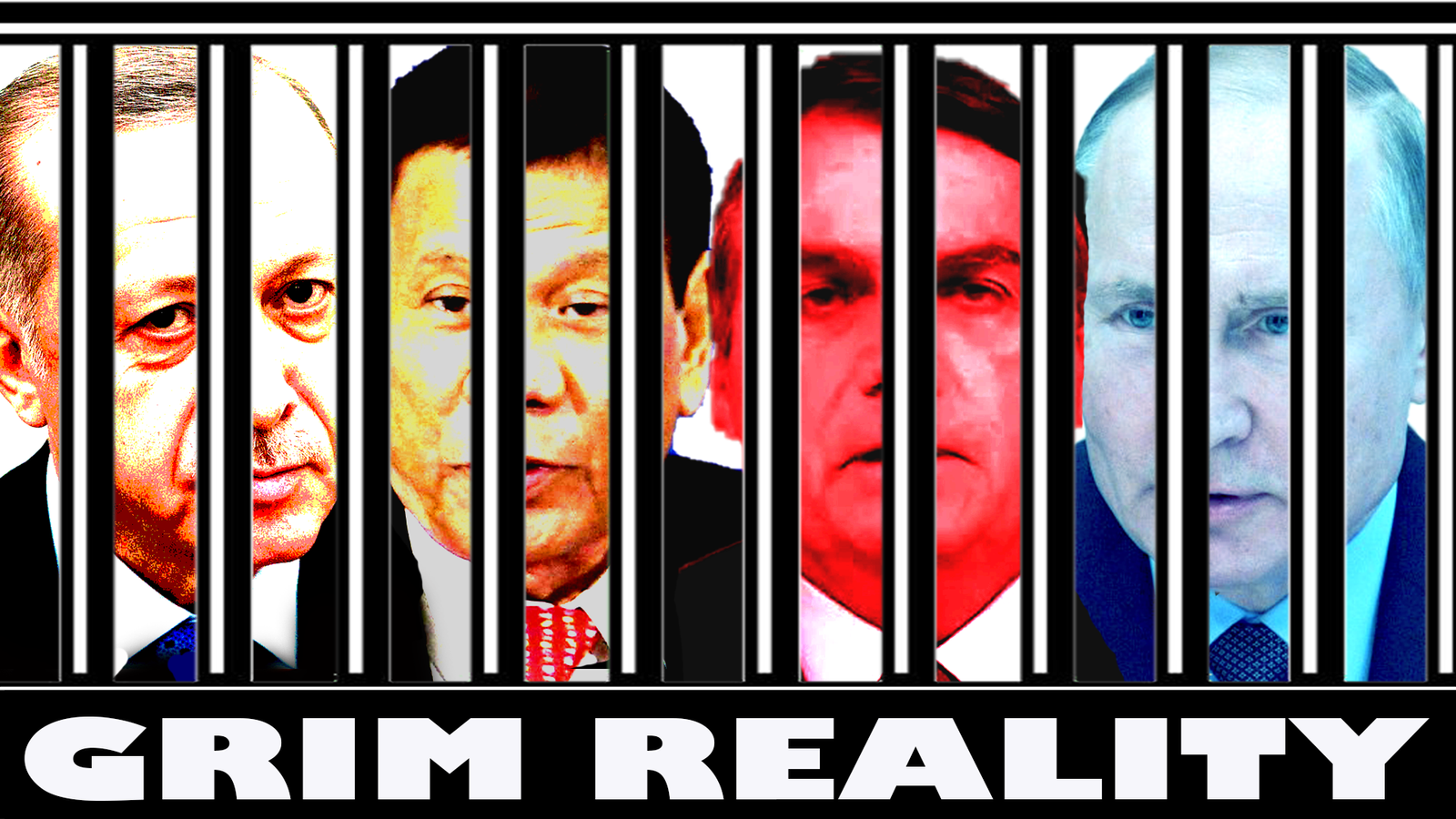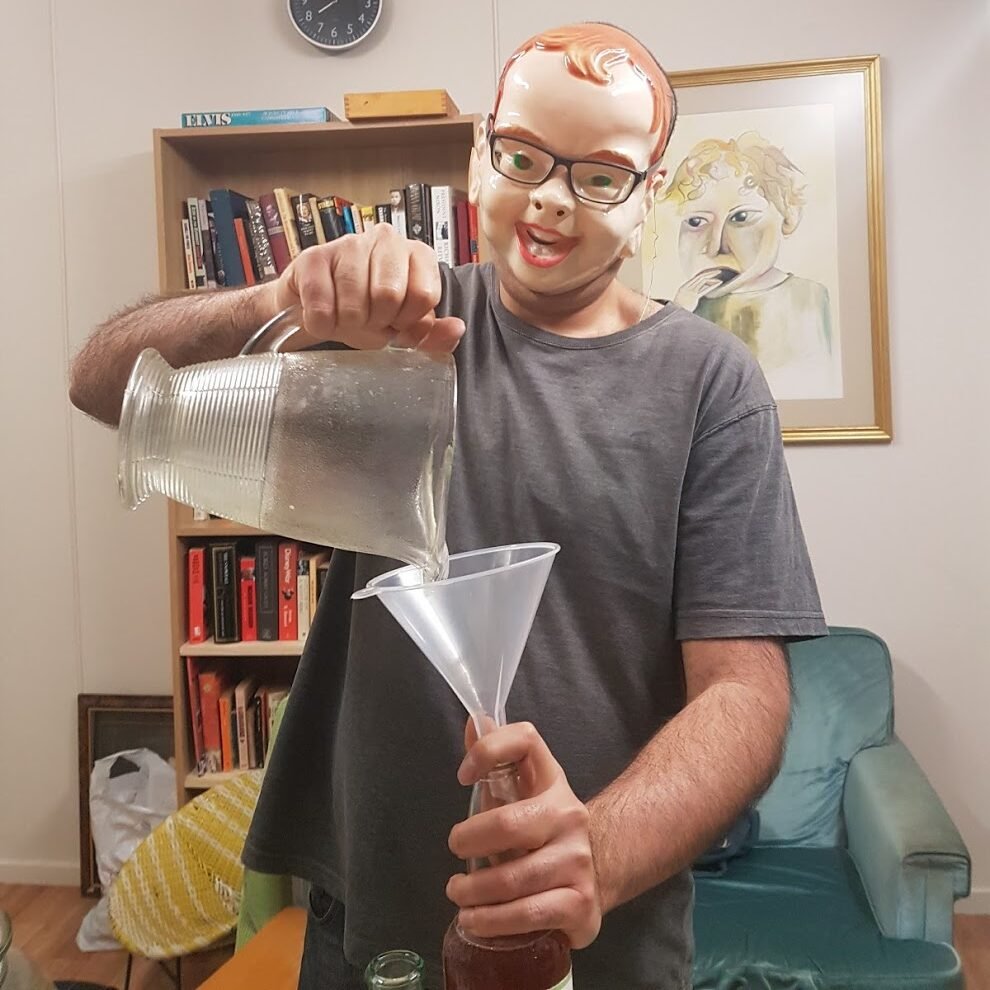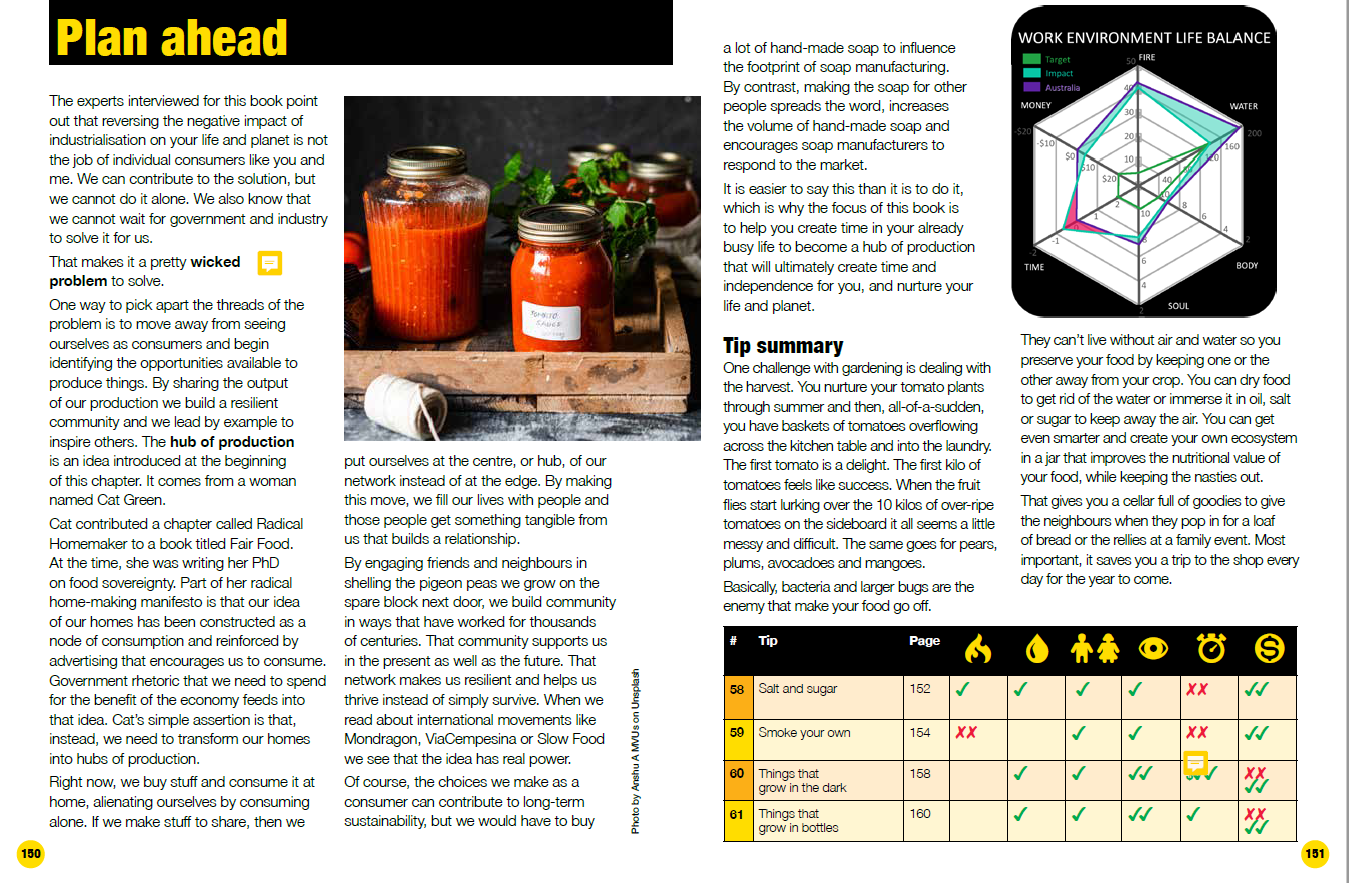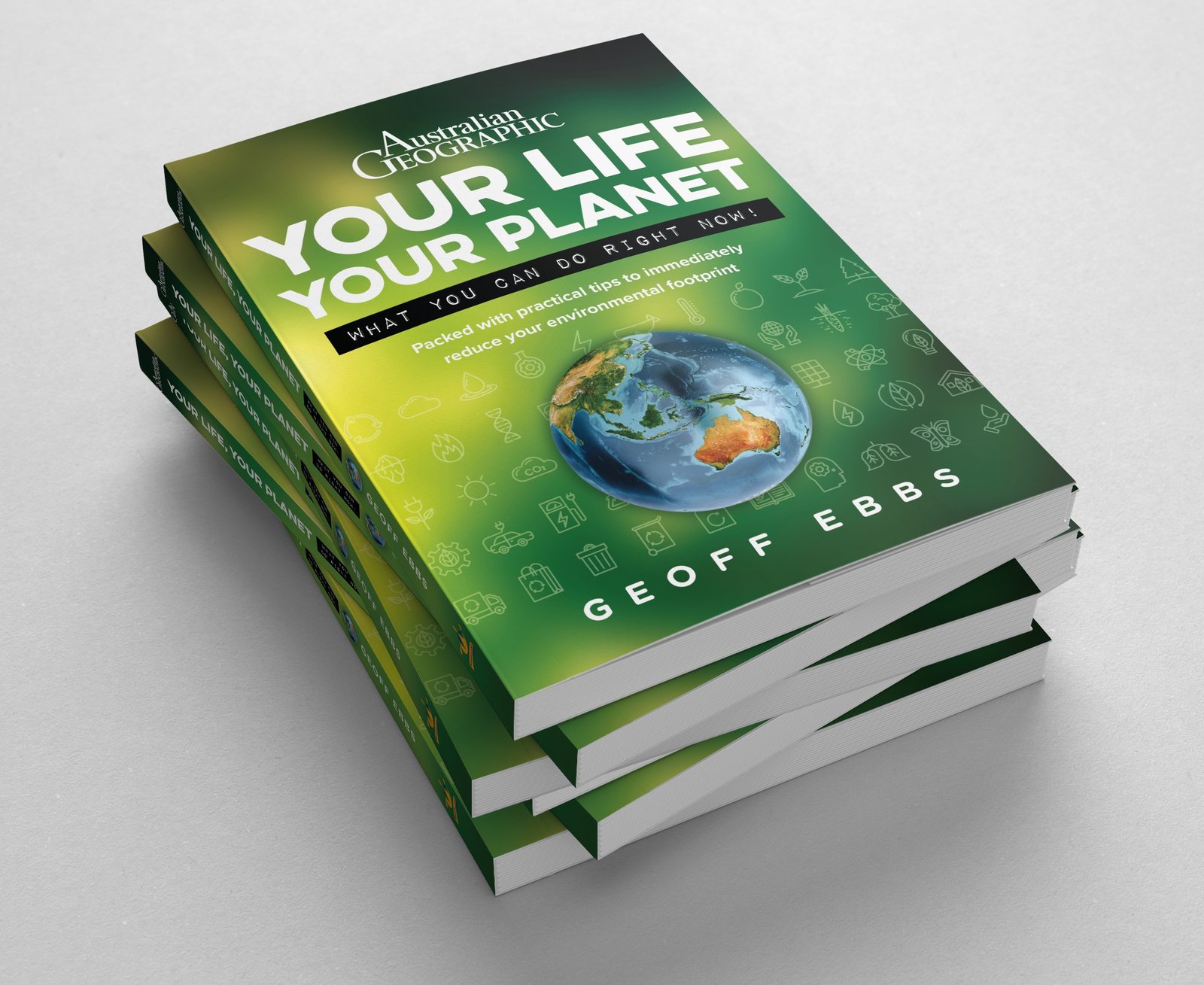There is an antidote to the depression brought on by climate denial and the corruption of our political process, writes Geoff Ebbs.
The side effects are that you can
feel good while you do good.
Facing the grim reality
The universal acknowledgement that climate chaos is a clear and present danger as opposed to a scientific prediction has ended the climate debate but has not removed the toxic and corrupt identity politics that swept Britain out of Europe and Trump into the US presidency five years ago.

Bolsonaro, Duterte, Erdogan and Putin still spew hate speech against minorities, science and social justice, while Morrison, Johnson, Modi and Netanyahu employ truth-free political messaging that masks hate speech as free-speech, suppression as security and corporate feudalism as well-being. We have become inured to inaction and deliberate worsening of government policy on climate, the two speed economy and the oppression and murder of women, first nations people and refugees that we have literally begun to head for the hills.
On the other hand, with Biden in the White House, captains of industry calling for radical reforms to economic governance and the rapid emergence of circular technologies that reduce pollution and resource extraction we can detect some sparks of hope. Powerful books – like RESET by Ross Garnaut, Value by Mark Carney and Full Circle by Scott Ludlum – fan that spark with well-developed strategies designed for leaders to govern in the interests of the people and take a long-term view.
The problem is the depressingly huge gulf between what passes for leadership in many countries and the leadership we need to steer us through this existential crisis. For decades, we have been confronting an ‘end of times’ threat to our existence with reassurances that the global financiers will look after us and our lives will continue as normal as four billion people elsewhere in the world perish so that we might survive.
While it is entirely possible that a failure of leadership will result in any of the apocalyptic disasters it is not certain. The alternatives range from terrible hardship under a reign of terror to something that looks quite a lot like the present with less plastic toys and rationing of many things we now consider to be basic essentials.
It is even possible that our governments magically transform overnight into intelligent caring beings and adopt the policy strategies outlined in any of the books quoted above. It does not seem wise, however, to count on that as our only strategy.
The hub of production
Now, let’s fan those few sparks of hope and build a small fire to warm our harrowed souls.
The starting point is your present lifestyle.
2020 taught us how quickly things can change but, for most of us, we have learned that through those changes many things remain the same. We found the capacity to adjust our current lifestyle to build resilience. In the long term, that creates reserve capacity to deal with change and stop blindly relying on the future to exactly resemble the past.
The next step is to identify those parts of your present lifestyle that will survive the greatest external shocks.
Again, 2020 taught us a great deal. Even in Melbourne during the 100 day lockdown, we could walk around the block. We could grow and prepare food at home, and we could share that food with our neighbours.
The essence of this is what Cat Green once called the transition of our homes from nodes of consumption to hubs of production. Instead of leaving home and going out into the world to purchase things for consumption we stay home and produce those things. Instead of getting home ripping off and tossing out the packaging while we consume some of the contents then throwing the unwanted part of the contents away, we share the food we have produces with our neighbours, exchanging what we have made for what they have made.

We have freed ourselves from the consumer trap and become active, engaged members of our community. This transition also frees us from the trap of convenience. Instead of being time poor, this adjusted reality builds a new form of multi-tasking. Instead of doing multiple things poorly in a distracted fashion, we now enhance one activity with many benefits. As we walk the neighbourhood, exchanging the fruits of our productive time, we socialise, exercise and we learn.
This simple shift of focus, sets off a cascade of benefits that disconnects us from the matrix, that consumed our time, money and energy for the benefit of the global financial system. In this picture, working from home is a revolutionary act.
The benefits go beyond our neighbourhood, though. Many of the things that we gave up in 2020 – tourist travel, commuting, meetings, eating out – are expensive. We saved money, we emitted less greenhouse gas as we got to know our families and our back yards better. In some cases we built chook yards, vegetable gardens and community. These are all components of resilience that have long been the basis of strategies like transition towns, eco-villages and urban food.
Subsequent steps are more of the same, learning from our experience, from each other and acknowledging that we are changing as the world changes around us.
The importance of this is that there is no “snap back”. The pandemic is not over; the next extreme climate event is around the corner; plagues of mice, fall army worms and locusts are breeding up in a La Nina year, and el Nino and another long drought are on their way.
2020 was the first step towards a new normal that will never be the same twice. We don’t know how it will end up, but we do know that if we are not preparing to look after ourselves and our neighbours we will end up at each other’s throats.
Of course, these simple, local acts are not enough. Significant as they are, they do not address the big picture. For that, we need to engage more broadly.
Connecting the dots
As we build our personal and community resilience we must continue to participate in civic activities in broader society.
Reflecting on our capacity to influence broader policy, it is significant to consider the impacts of grass roots behaviour on the politics of renewable energy. All our individual solar panels have collectively changed the nature of the power grid and also brought down the price of renewables – both changes that needed to happen. Those very significant changes have made it impossible for governments to ignore the reality of cheap renewables, but it has not been sufficient to convince a large minority of politicians, in both conservative and progressive political organisations, that they should govern in our interests instead of the interests of the fossil fuel companies that pay their electoral costs.

Not all of us want to engage in federal politics. Whether your civic horizon extends to your street, the local school or community hall, a hospital university or elected government, your civic engagement is critical to the shaping the big picture. These larger organisational units drive the changes that we cannot affect on our own. We must engage in discussions about policy, about our preferred vision of the future, about the moral values we want apply to those not receiving the benefits of whatever organisation we involve ourselves with.
One factor influencing where we place our limited energy is the scale of the impact we want to have.
Recognising that the future is uncertain means acknowledge that we may potentially lose everything. In turn, that means that we have to decide what elements of our current lifestyle we are prepared to fight to preserve and what we are prepared to discard.
Personally, I am deeply engaged in a University on which I depend for many aspects of my lifestyle. A university requires at least a city sized population to support its widespread activities, so I am not prepared to head for the hills with a thousand cans of baked beans and a powerful rifle as my survival strategy. Other members of my family are much more focused on the neighbourhood where we live and put their energy into maximising the resilience of that community.
Again, the simple shift in perspective from being a consumer that is impacted by external events outside our control to being a citizen engaged in producing the future we want energises and empowers us.
Working from home can be an act of revolution, working in the local community can build the revolutionary government.
Exit by the gift shop
In the interests of fuelling my personal Hub of Production, I invite you to look over my book on the subject, Your Life Your Planet.
Thinly disguised as 101 tips to reduce your environmental footprint, it lays out in the simplest possible English the manifesto for the revolution that is the Hub of Production.
Active environmentalists will find little that is new in the tips themselves, what is new is the framing of those actions as a strategy for building resilience. What they will find is accurate numbers, fully researched from first principles that justify all the claims about the impact of any particular action.
Political activists will find little by way of theory of change, this is a user friendly guide to minimally adjusting your lifestyle for maximum effect. What they will find though, is that from the first paragraph of the first page, the subtext of the book is that the era of economic growth is over, that everything we take for granted will change as a result and that we are going to have to build resilience from the ground up.
The truth is, this book is not intended to be read by environmentalists and political activists. It is intended to be used as a tool. It is aimed at busy mums and dads in the suburbs who are more concerned about day to day survival than they are about the big picture.

The combination of good research into the facts and an honest appraisal of the political landscape makes it very easy to see what really matters. Showering with a bucket is great for saving the vegetable patch during a drought but a grew water system does a much, much better job if you own your own house. Driving an electric car is kind of cool and might eliminate your driving emissions, but it uses the same amount of metal and manufacturing resources to build the thing. Walking on the other hand is good for your mind, body and soul, exposes you to learning more about your neighbourhood, local nature and your community. It also eliminates your transport emissions. Think about it.
Taking the electronics out of your bedroom, getting to know your local wildlife, leaving the phone at home, brewing your own beer … these are just some of the revolutionary acts that make you feel good, while you nuture your planet and your life.
In keeping with the audience positioning it is available at Big W, as well as inner city café bookshops and wine bars and, of course, the author’s website. Get yourself a copy and give it to a climate denier you know. They will not be able to resist just having a peek. Who knows, it might make a difference.
